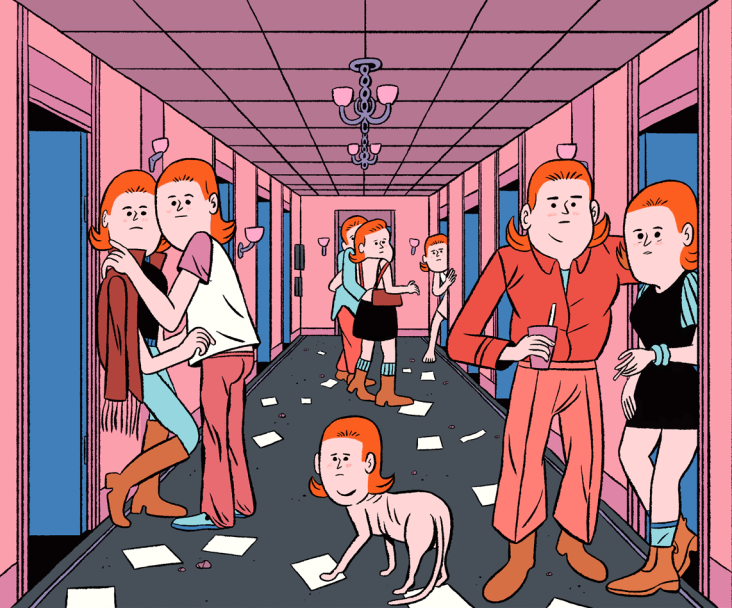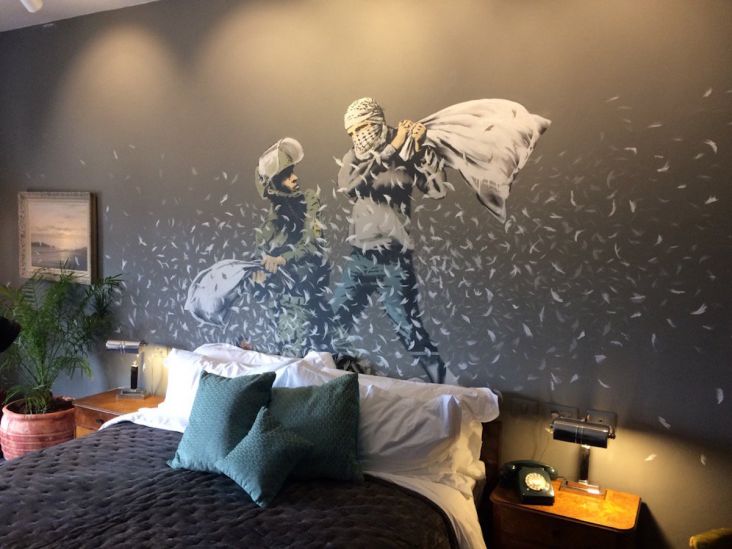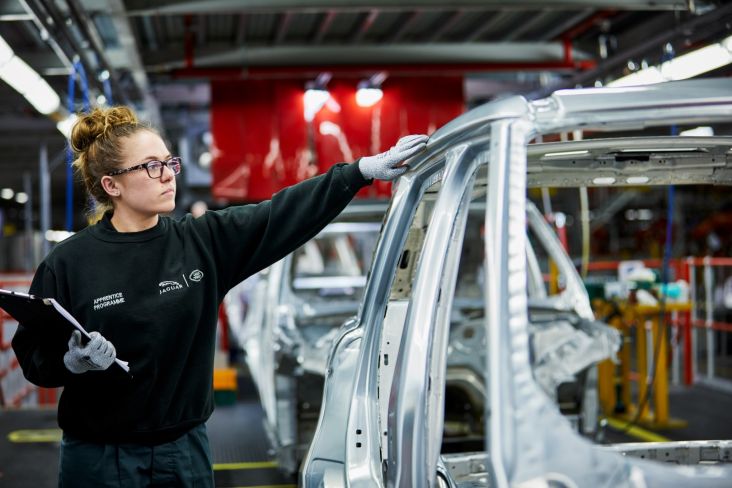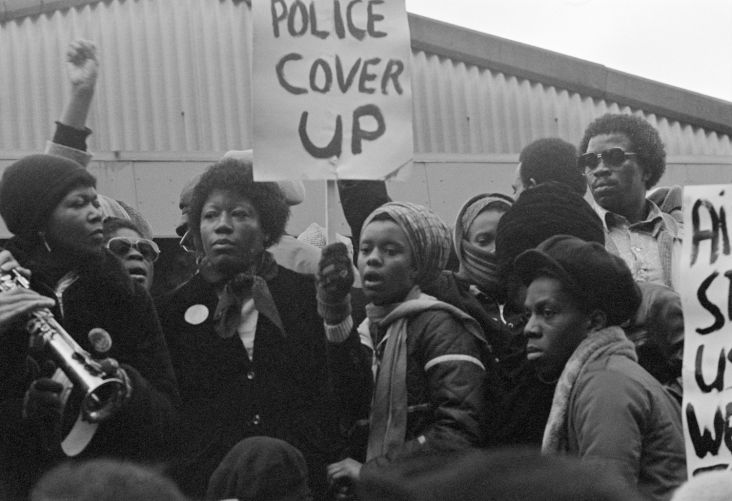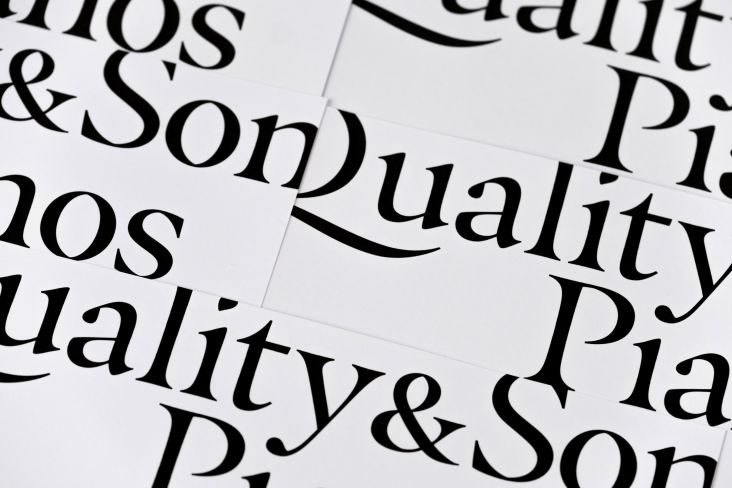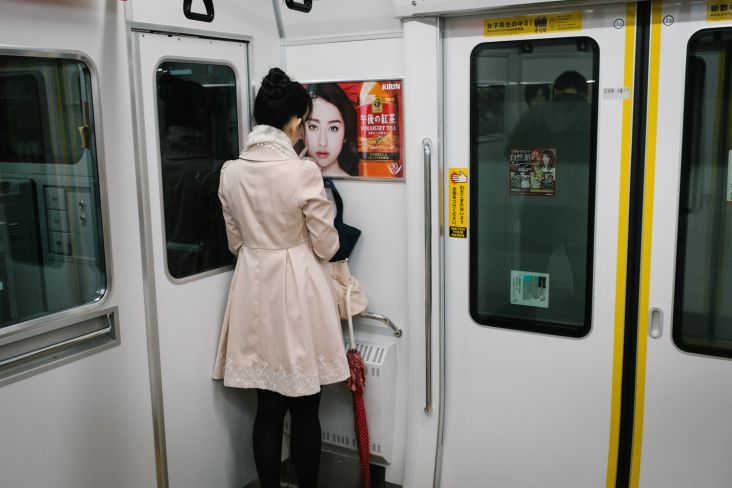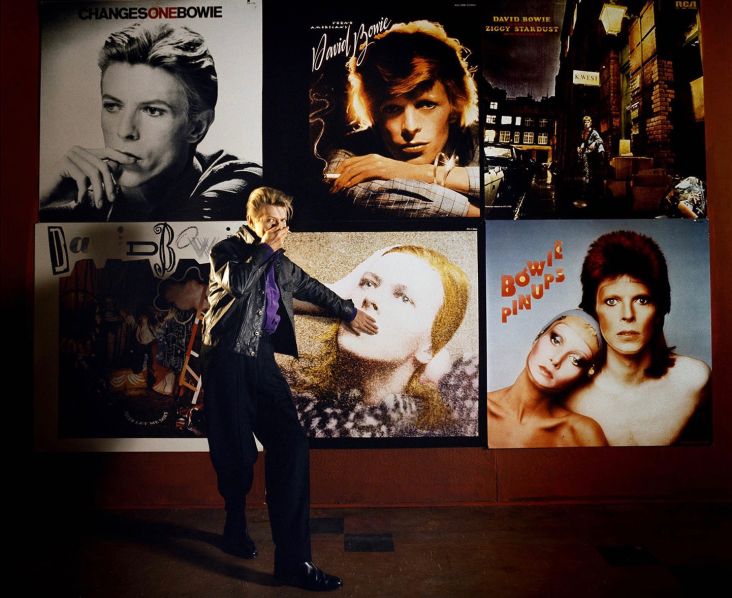Protest Lab: Discover a cultural history of protest and activism in Sheffield
Sheffield has a strong history of protest. Activism in the city has spanned the radical press in the 1790s, Samuel Holberry and Chartism in the 1830s, Suffragism and Adela Pankhurst in the early 20th century, right through to the miners’ strike and the 'Battle of Orgreave' to the Campaign for Truth and Justice happening right now.
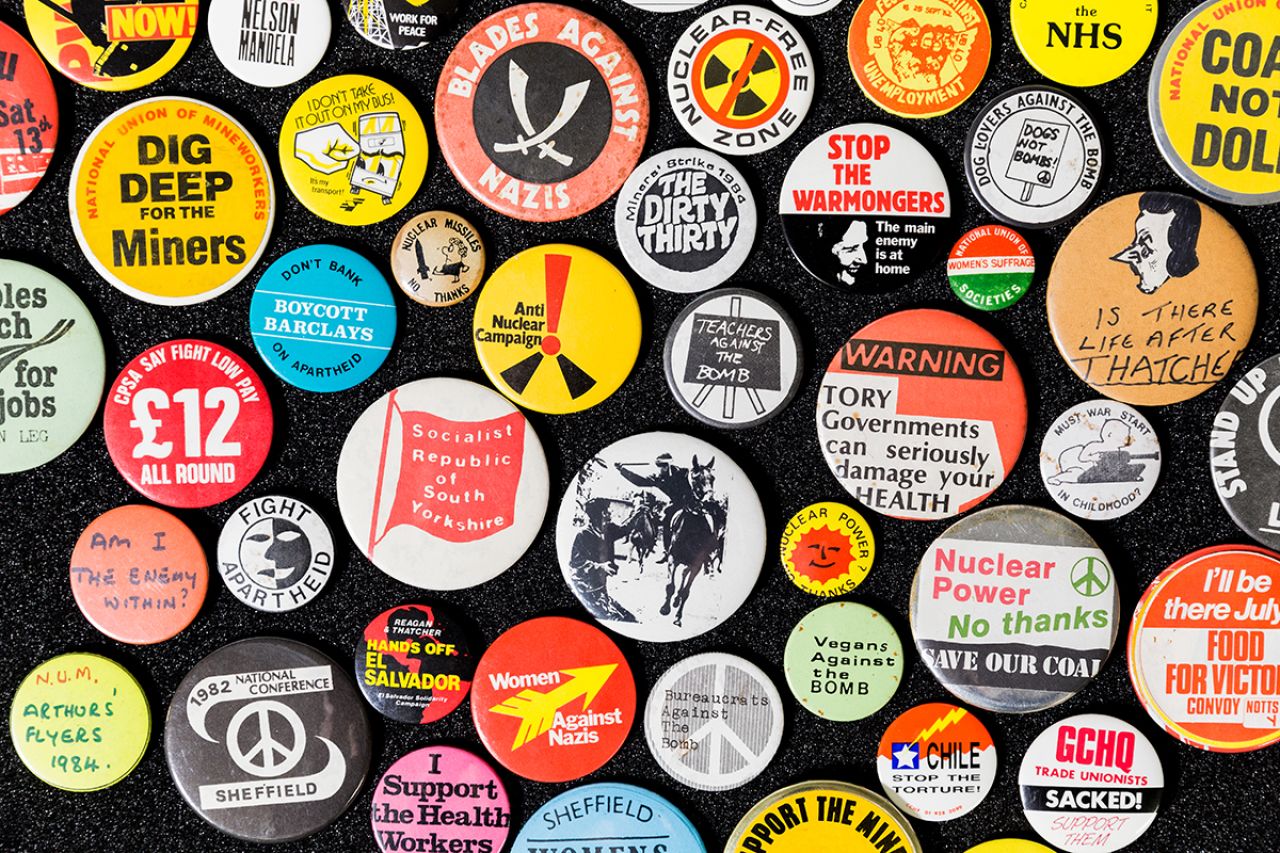
Protest badges from the city's Social History collection © Museums Sheffield
That spirit of standing up for what you believe in is still very much alive today.
Opening on Saturday 18 March, Protest Lab will be an experimental, vocal, social space where views can be shared and ideas challenged. Visitors will be able to see photographs from Greenham Common, a peace camp established to protest nuclear weapons on British soil in the 1980s which saw women from Sheffield take part, and a Crookesmoor Against the Poll Tax banner, alongside song sheets, newsletters and badges produced in the city.
The space will also ask visitors what should be added to Sheffield’s collections to represent activism in the city, which protests and causes matter to them and which should be included in next year’s programme of exhibitions and events marking the 100th anniversary of the Representation of the People Act. Laying the foundations of democracy in the UK today, the 1918 Act granted the vote to women over the age of 30 who met certain property criteria and gave the vote to all men over the age of 21.
Louisa Briggs, Project Curator (Sheffield: Protest & Activism) said: "Protest Lab is a fantastic opportunity for us to share our forthcoming project with visitors – Sheffield’s voices will be at the heart of our 2018 project and we’re keen to represent as many views and ideas as possible."
Protest Lab opens at the Millennium Gallery on Saturday 18 March and continues until Sunday 21 May – entry is free. Find out more at museums-sheffield.org.uk.
All images courtesy of Museums Sheffield | Main image: Protest badges from the city's Social History collection © Museums Sheffield
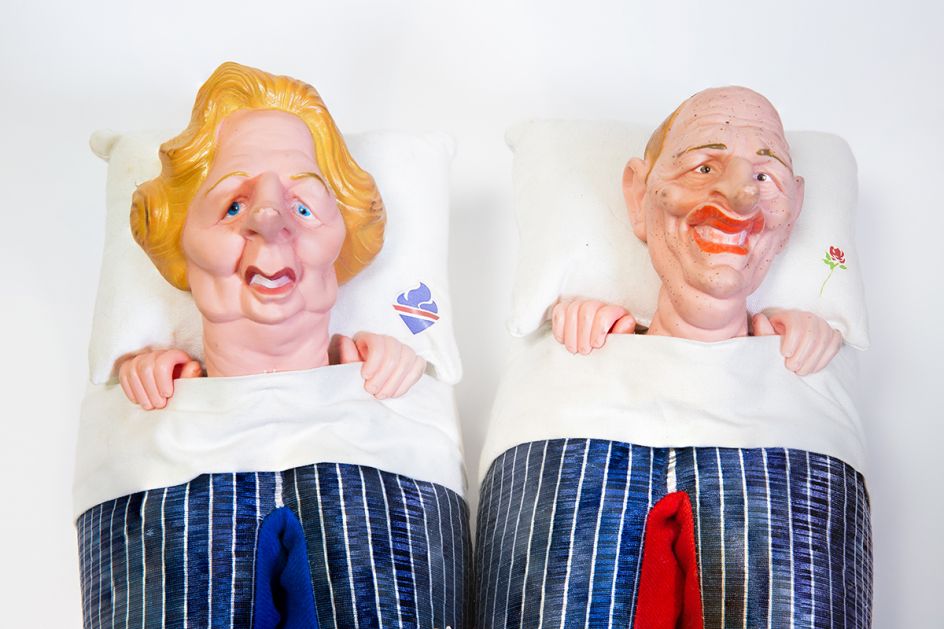
Margaret Thatcher and Neil Kinnock Spitting Image slippers (detail) © Museums Sheffield
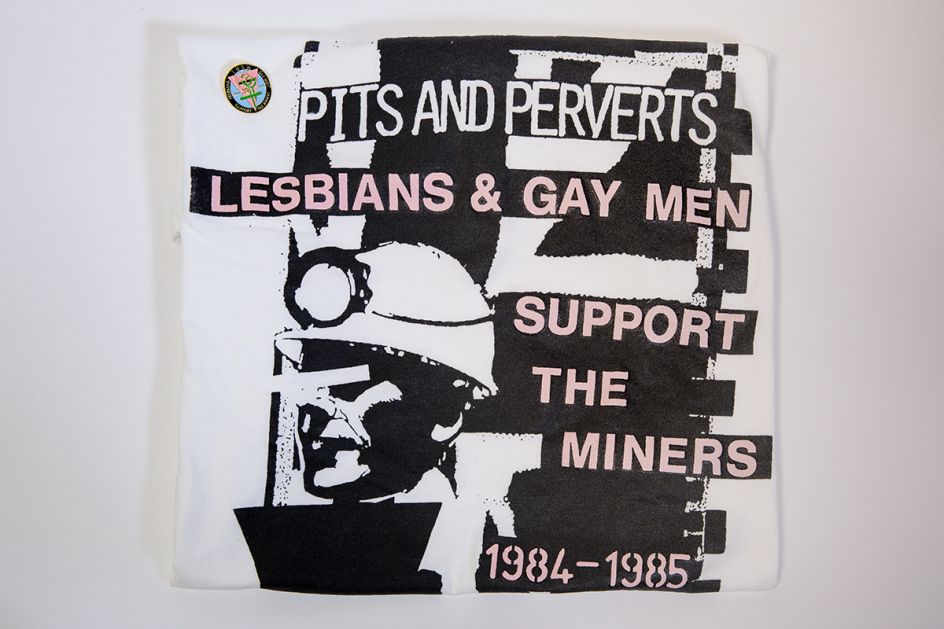
Pits and Perverts T-Shirt (Lesbians and Gay Men Suppport the Miners) © Museums Sheffield
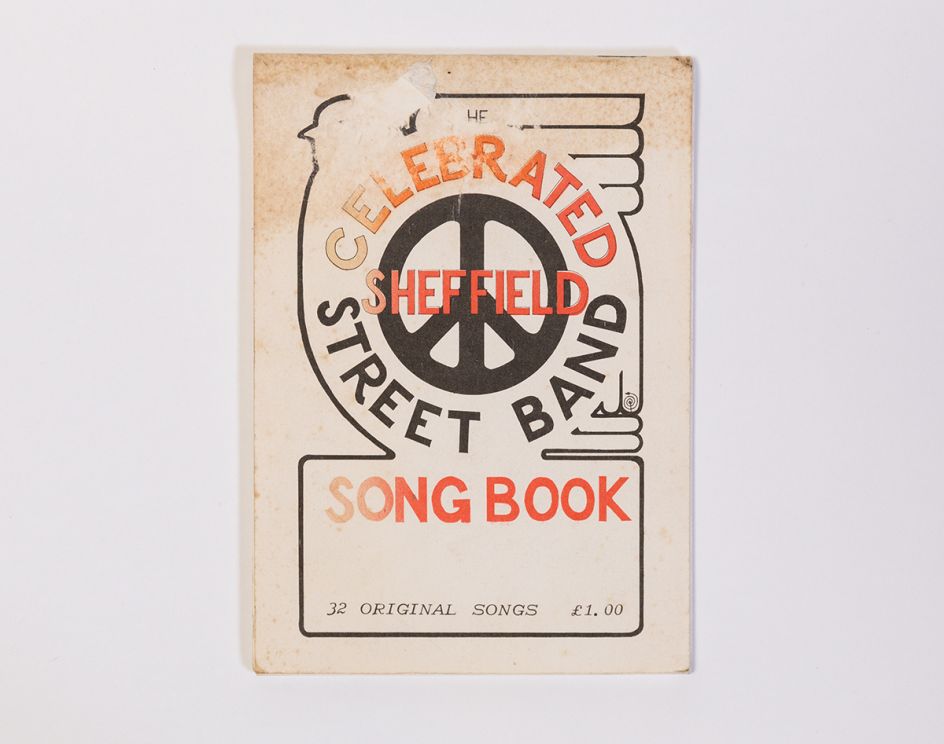
Sheffield Streetband Songbook © Museums Sheffield




 by Tüpokompanii](https://www.creativeboom.com/upload/articles/58/58684538770fb5b428dc1882f7a732f153500153_732.jpg)


 using <a href="https://www.ohnotype.co/fonts/obviously" target="_blank">Obviously</a> by Oh No Type Co., Art Director, Brand & Creative—Spotify](https://www.creativeboom.com/upload/articles/6e/6ed31eddc26fa563f213fc76d6993dab9231ffe4_732.jpg)








